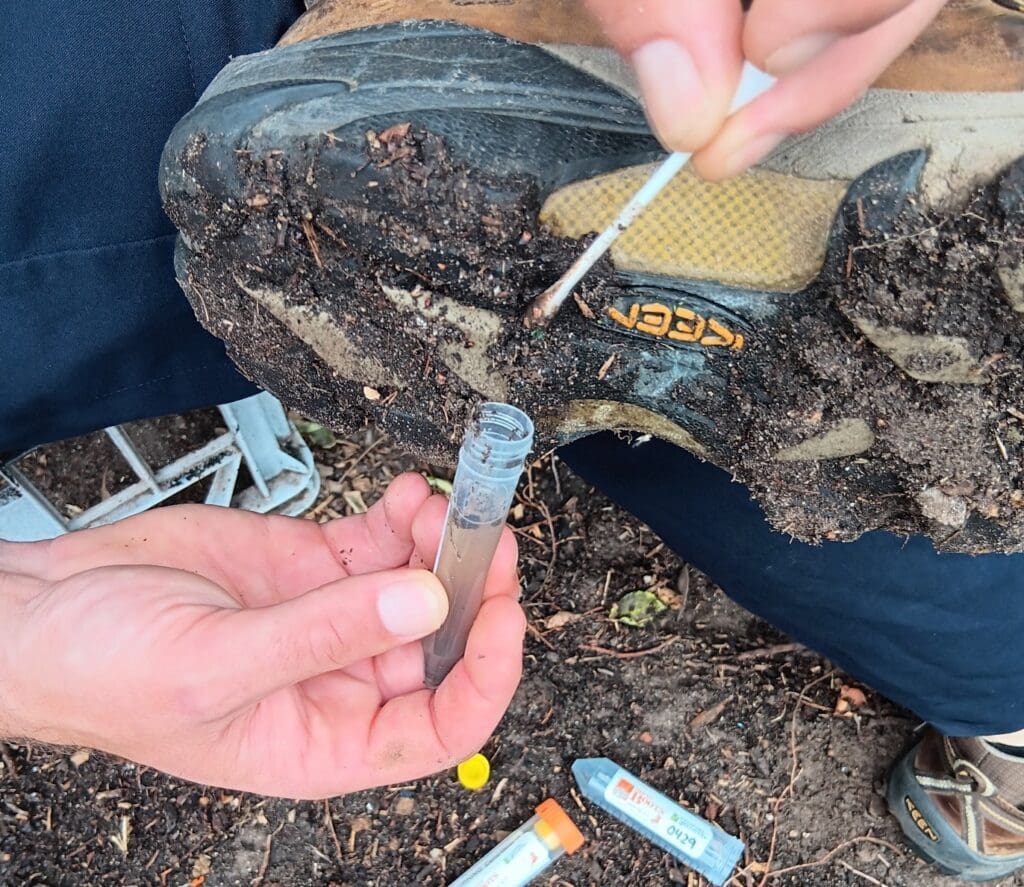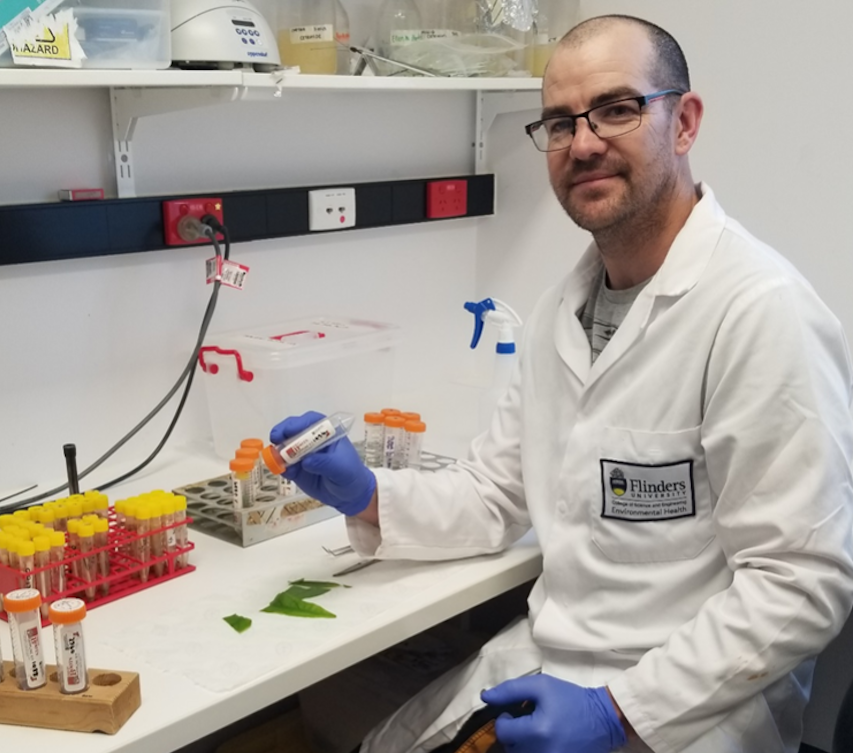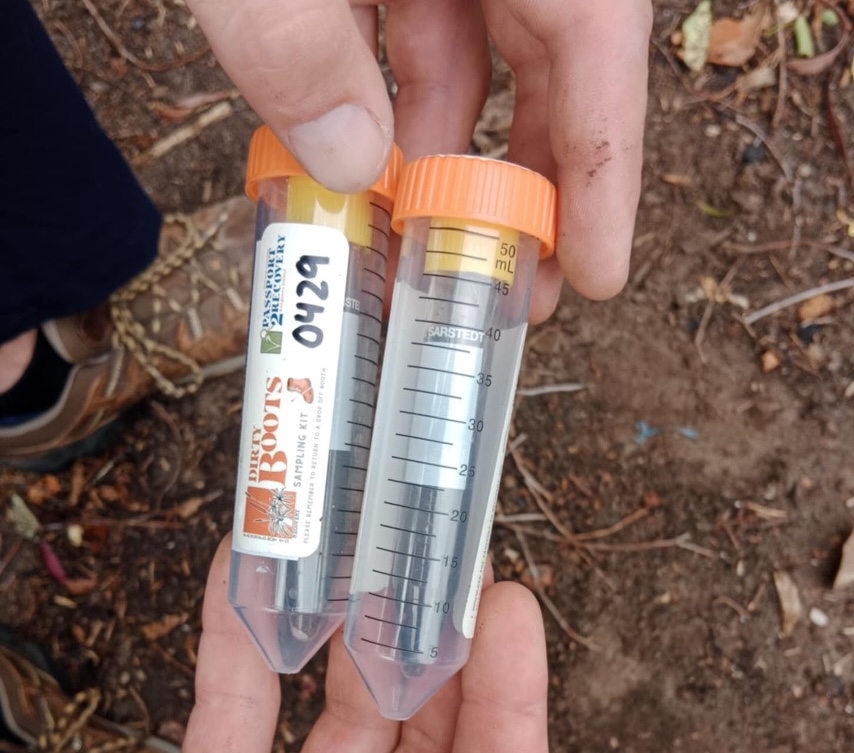Dieback Working Group, News
The “Dirty Boots” Project
We were fortunate to have Nick Wilkins present at the DIG Conference earlier in 2024 and share a citizen science project he’s been working on in Kangaroo Island, South Australia to help educate the public about Phytophthora cinnamomi and get people involved through reporting and sampling while visiting the island. Nick tells us more about this very clever “Dirty Boots” project in his article below.
If you’re planning a trip to Kangaroo Island, be sure to download the Passport2Recovery app and refer to the 7 Leave No Trace principles to help protect this beautiful wild place.
The Dirty Boots Project
Author: Nick Wilkins
PhD candidate, Environmental Health, Flinders University. South Australia

Swabbing shoes to send sample to Flinders University for analysis
Kangaroo Island, off the coast of South Australia, is in the process of recovering after an intense fire in 2019-20 which burnt 38% of the island. The “Passport2Recovery” app is a series of citizen science projects that were created to increase interest and provide learning experiences by exploring the recovery around the island. The idea was to promote conservation by getting people involved in monitoring the natural regeneration and diversity of native beauty on the island.
There are 12 projects on the Passport2Recovery app, including the Phytophthora “Dirty Boots” project. This project has two separate parts. Phytophthora cinnamomi (Pc) is a problem on the island and management strategies are in place. Pc is explained to the citizen scientists using the app, and encourages them to get involved and to help us understand the spread of dieback caused by Pc.
The first monitoring project asks the citizen scientist to take a photo of a grass tree (Xanthorrhoea sp.) and rate the health from alive (5) to dead (1) of the individual plant. Uploading these details helps us map potential dieback, which allows us to monitor changes over time.

Nick in the lab at Flinders University

Citizen scientist sampling tubes
The second sampling project is more hands-on. Upon entry to the island, the citizen scientist collects a sampling tube, which contains the necessary components to swab the bottom of their shoes for mud and dirt, which is then sent to Flinders University for analysis. This will help us collect information on where new infestations of Pc may have spread to, and the role that dirty boots have in increasing the spread of Pc. The data collected are then mapped for each project and this can be seen on the app.
We have had an incredible response to the projects so far and look forward to this continuing. Kangaroo Island is an ever-expanding growth for tourism and environmental regrowth thus the importance of maintaining natural ecosystems from threats like dieback.

